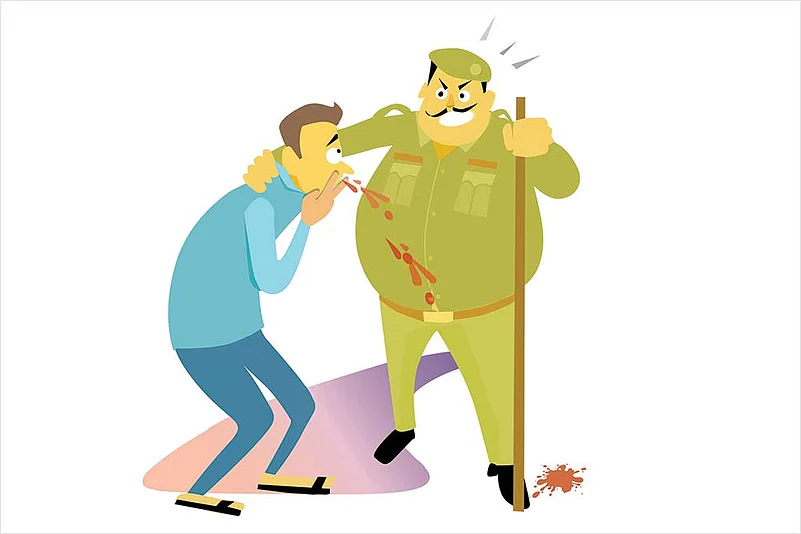During the first, full flush of the COVID-19 induced lockdown in April, it appeared that a well-aimed government directive would rid India of one of its most irksome and ungainly habits—indiscriminate and copious spitting by (usually) males, their coloured projectiles staining public avenues and sullying stately edifices and offices. Spitting has been an offence under many municipal laws, though it fails to deter anyone. Then, in a bid to halt the spread of the pandemic, the Union home ministry made spitting a punishable offence under the Disaster Management Act. In addition, states like Bihar, Jharkhand, UP, Maharashtra and Telangana, among others, banned the sale of smokeless tobacco products like gutkha and pan masala. In Hyderabad, a milk van driver, Abdul Muzed, was promptly arrested by the police for spitting. Will this encouraging start be sacrificed now? For enforcing a ban on spitting while allowing the sale of gutkha and pan masala could prove to be challenging, if not impossible.
The government’s latest notification which extended the lockdown till May 17 has allowed the sale of tobacco products for the first time since March 24. Pan or gutkha chewing makes spitting practically inevitable. Yet banning their sale robs the livelihood of lakhs.
Health professionals say that spitting is a major cause of the spread of the virus as well as other diseases. They welcome the ban and say that such prohibition should be continued even after COVID-19 ceases to be a threat.
How far can making spitting a punishable offence be a deterrent? Under the law, a person can be fined up to Rs 1,000 or jailed for a maximum two years for malignantly committing an act likely to spread a serious disease.
However, the all-pervasive and indiscriminate threat that the pandemic poses to everyone have convinced legal and behavioural experts that COVID-19 will bring a paradigm shift in personal hygiene. They believe people will, for example, imbibe and inhere the habit of washing hands and using sanitisers, but say that legal intervention is necessary to inculcate a sense of public cleanliness.
Lawyers say that there are ample legal provisions that have empowered police to enforce such restrictions. Nishant Kumar Srivastava, lawyer, Delhi High Court, says that the new restrictions can be continued even after the pandemic is contained. “The Indian Penal Code has various provisions which may be interpreted to also include spitting in a public place an offence, though the word ‘spitting’ has nowhere been used,” Srivastava says.
He adds, “Spitting at a public place, in the light of the contagious nature of COVID-19, may easily fall in the definition of ‘an act likely to spread infection of disease dangerous to life’.”
So, the police can arrest an offender, lodge an FIR and the courts can impose punishment. Yet, in reality, it is difficult to impose the law on an offence as ubiquitous as spitting: the police, certainly, can’t keep an eye on every nook and cranny.
“There are several illustrations in India’s judicial history where different courts in order to maintain cleanliness have issued various directions,” D.K. Garg, a Supreme Court lawyer, says. “Despite that, we can’t maintain basic hygiene at public places. That’s why the PM initiated Swachh Bharat Abhiyan to bring mass social awareness among people.”
Behavioural experts say that changing habits takes time and requires a dedicated and concerted effort by an individual. Kamna Chhibber, head, department of mental health and behavioural sciences at Fortis Hospital, says that a ban will be helpful only if it is followed by prescribed action or punishment in a consistent manner later as well. “Lack of consistency encourages people to revert to old habits which one had internalised,” Dr Chhibber says. She adds, “The reminder to not do so cannot just come from authorities but also needs to come from those around, as citizens themselves become more socially responsible and support efforts towards the change.”
ALSO READ


























